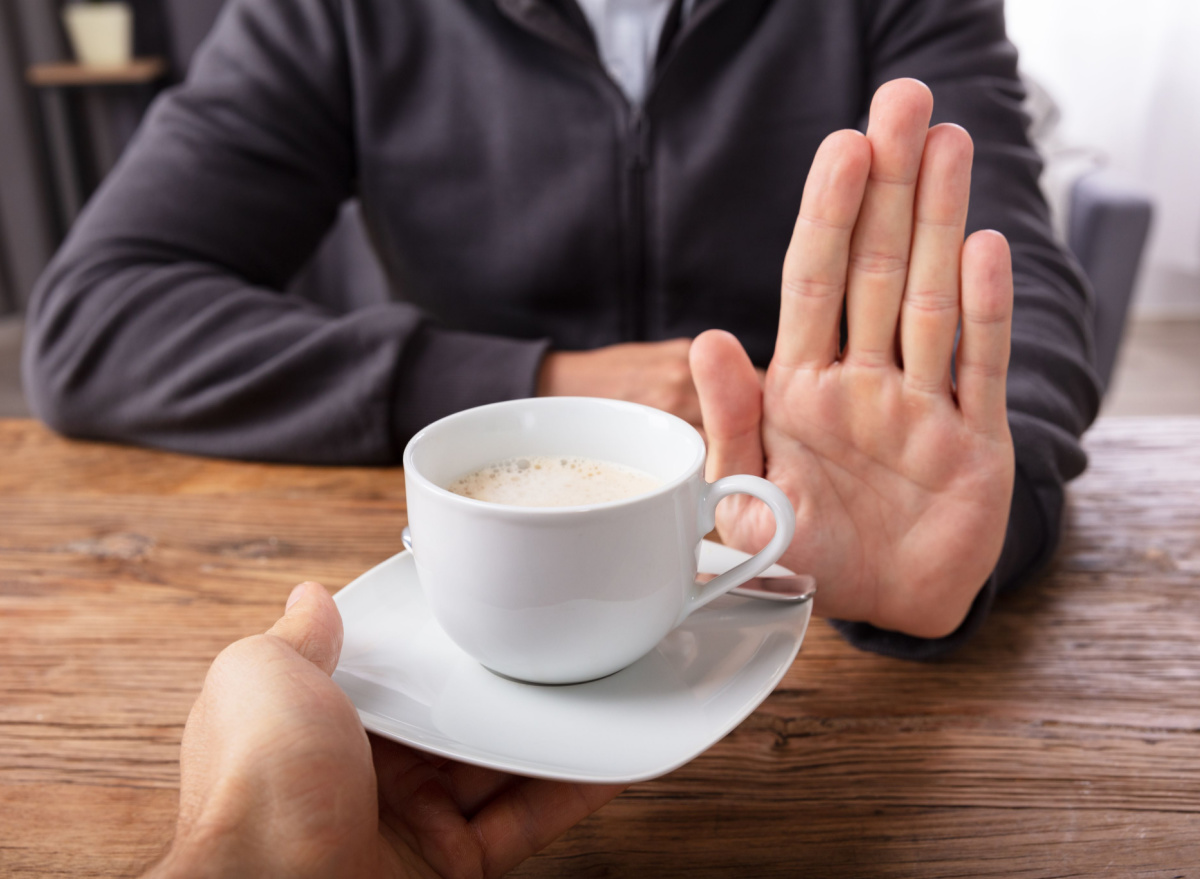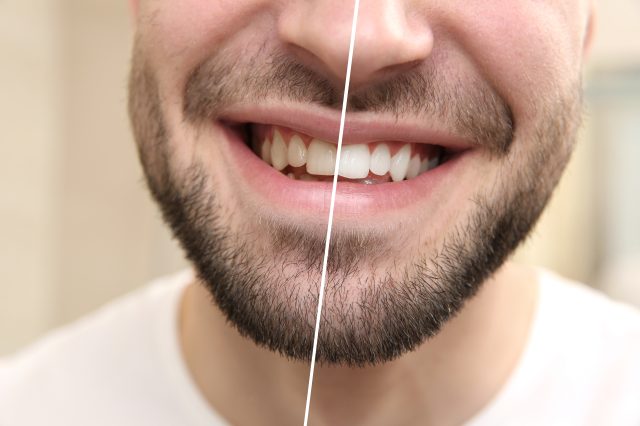I Gave Up Caffeine for a Month and Saw These Life-Changing Effects

For me, the day doesn't start until the first (or second) cup of coffee is consumed. And I'm not alone in my infatuation with coffee; 64% of U.S. adults consume the popular beverage daily. That's how I've functioned my entire adult life—until a month ago, when I gave up caffeine cold turkey.
While I used to love the caffeine buzz and increased alertness that coffee gave me (or so I thought), I began to notice that my relationship with coffee was becoming toxic—riddled with jitteriness, irritability, low energy, and growing anxiety. I won't say it was a full-blown addiction, but I relied heavily on caffeine to get me going each morning. When I reached the point of drinking three or four cups per day and was no longer enjoying it due to the anxiety and energy crashes, I knew it was time for a change.
That's when I decided to cut out caffeine by swapping my morning coffee for herbal teas. At first, the task seemed impossible. The tea was bland, and the caffeine withdrawal symptoms kicked my rear end right off the bat. On day one I experienced headaches, mental fog, poor sleep, irritability, low energy, and lack of motivation. Also—TMI alert—my morning bowel movements, which once ran like clockwork, suddenly became a struggle each morning. These symptoms persisted on days two through five. Fortunately, they reduced after the first week, but continued to linger until the end of week two.
After two weeks of suffering in a post-caffeine stupor, something miraculous happened. My body began to adjust to functioning without caffeine. I no longer craved that caffeine buzz and was starting to feel…different. Not like my old coffee-guzzling self, but a better version of my true self.
Read on to discover the life-changing benefits I experienced after quitting caffeine for 30 days, and find out why you might want to consider giving it up, too.
I began sleeping better.
Remember when you were a teenager and could sleep anywhere, anytime, for hours on end? Ah, yes [cue nostalgic sigh], those were the days. Like most people, I've always chalked up my sleep problems to "getting older." However, my sleep improved tremendously within two weeks of quitting caffeine. I began falling asleep without issue, didn't have to get up to pee in the night, and consistently woke up feeling energized and refreshed—no more zombie-shuffling to the kitchen to await my caffeine jolt.
While caffeine can temporarily boost alertness during the day, it can seriously mess with your sleep quality and cause drowsiness and irritability the next day. So when you habitually consume caffeine, it becomes a vicious cycle of short bursts of alertness followed by energy crashes and persistent fatigue. For example, research shows that drinking 400 milligrams of caffeine six hours before bed can significantly disrupt sleep quality by reducing total sleep time by one hour. When experienced over time, this loss of sleep can wreak havoc on your health.
My teeth started getting whiter.

I don't know about you, but I'm sick of being reprimanded by my dentist for being a coffee drinker. My teeth have never been overly stained, but they could certainly have more sparkle to them. Every six-month visit to the tooth doctor had them asking whether or not I drank coffee and commenting on my stained teeth. Well, I can't wait until my next dentist appointment to rub my stain-free smile right in their faces!
Besides helping whiten your teeth and eliminating coffee breath, giving up caffeine has other oral health benefits. Coffee is highly acidic, and research shows that acidic beverages can damage your tooth enamel and promote tooth decay.
I felt less anxious and irritable.
As someone who's battled anxiety most of their life, it was remarkable how much ditching caffeine soothed my nerves and quelled my anxiety. I found that I was no longer as stressed about work or family problems. Little things like spilling the milk no longer agitated me. My newfound calm makes sense, considering caffeine stimulates your "fight or flight" stress hormones, which can cause anxiety, nervousness, heart palpitations, and panic attacks.
Another huge, undiscussed benefit related to reduced anxiety is that I had more patience in parenting my children. Of course, any parent knows patience is a skill you have to work at developing your entire life, but after my withdrawal symptoms subsided and the anxious jitters dissipated, I was far less irritable and, therefore, that much more present (and much less stressed) around my kids—which is perhaps the most life-changing effect of all.






